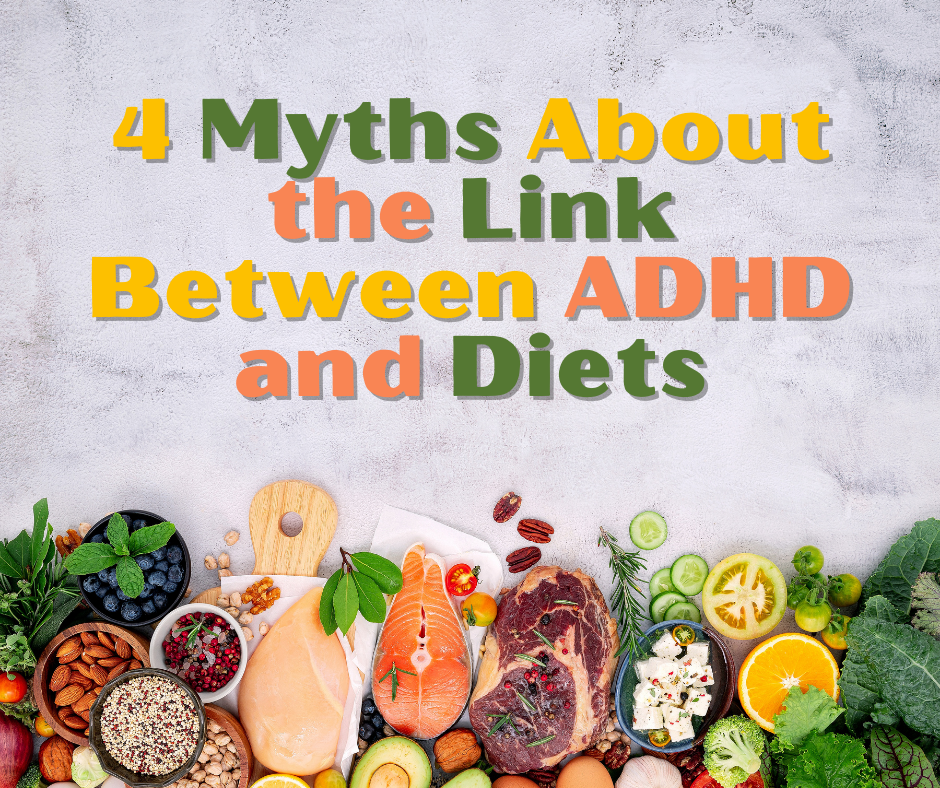ADHD, or attention deficit hyperactivity disorder, is a fairly common condition that typically affects children. It occurs when a child has trouble paying attention to their environment, is particularly focused on one thing for long periods of time, acts impulsively, and has a need to constantly move.
There is no known cure for ADHD, but the symptoms can be properly managed with medication and therapy. Besides that, having healthy lifestyles and diets and not listening to myths are important for ensuring they live life as normally as possible even with ADHD. Ask any parent about what they do for their child with ADHD and you’ll probably hear a wide range of advice!
With that said, we’re here to debunk some myths about diets and ADHD. It’s important to know what’s true and what’s not so you don’t inadvertently make your child’s health worse.
1. Sugar Causes ADHD
You’ve probably heard of a sugar rush or a sugar high. This is when people who consume lots of sugar end up being super energetic and all over the place for the next few hours trying to work off the excess sugar. And that’s probably the reason why many parents refuse to feed their kids with ADHD sugary sweets or drinks—they think that it either causes ADHD, or exacerbates ADHD symptoms.
However, studies linking sugar and ADHD have been very minimal and contradictory. Some studies agree that sugar and ADHD are linked, while others do not. So, more research needs to go into the relationship between the two.
But what we do know is that consuming sugar in moderation is good for kids in general. Excess sugar is been linked with dangerous conditions like obesity, heart disease, diabetes, and hypertension, so it’s best to limit sugar consumption to no more than six teaspoons a day. That means both children with and without sugar can still enjoy their favorite sweet treats in moderation.
2. Omega-3 Supplements Can Cure ADHD
Omega-3 fatty acids are fats that have a ton of health benefits. They’re good fats that help cholesterol get away from your arteries and out of your body. On top of that, many parents rave about how omega-3 fatty acids have helped their children manage their ADHD symptoms!
However, studies have shown that the link between ADHD and omega-3 fatty acids is not as amazing as it seems. While research has shown that omega-3 fatty acids can support ADHD symptoms, they’re not a miraculous cure for it. At best, they’re supplements that can support proper FDA-approved medications for ADHD.
If you do wish to add more omega-3 supplements to your diet, make sure to check the label. These supplements don’t go through stringent regulation, so some brands might be loads better than others. You should also consult with your doctor before taking any supplement.
3. Eliminating Certain Foods Can Reduce ADHD Symptoms
Eliminating certain foods from our diet has always been popular when it comes to managing health conditions. Some people eliminate carbohydrates to lose weight, some eliminate red meat to reduce heart problems, and some eliminate dairy to prevent digestive problems. In the same way, some parents eliminate foods that are said to worsen ADHD like artificial sweeteners and preservatives.
There are multiple problems with this. The first is that elimination diets don’t necessarily do anything for ADHD—in fact, as studies have shown, they don’t really do much at all. On top of that, elimination diets have negative effects on children.
For example, if you force your child to not eat sugar, they won’t be able to have birthday cake at a party or go trick-or-treating with their friends. They might feel lonely and isolated because they can’t enjoy things other kids can do. This will then make them think that eating is not a fun activity and affect their appetite and views on food.
4. My ADHD Child Does Not Need a Meal Plan
So, if all three of the previous myths have been busted, what’s the point of diets for my child with ADHD then? Does that mean we can feed them just anything?
Of course not! Children with ADHD are still children at the end of the day and require a diet that’ll help them grow big and strong. Every meal should consist of nutrient-dense food items like fruits, vegetables, whole grains, protein, healthy oils, and healthy fats. Not so healthy foods with sugar and salt can also be eaten, but in moderation.
Children with ADHD most especially need to stay on a healthy diet because of their ADHD. Some medications reduce their appetite when taken. Then, when the medicine wears off, the hunger comes back in full force and might make them binge eat. When they’re distracted by something too, they can forget to eat and then binge eat when they do remember that they’re hungry.
